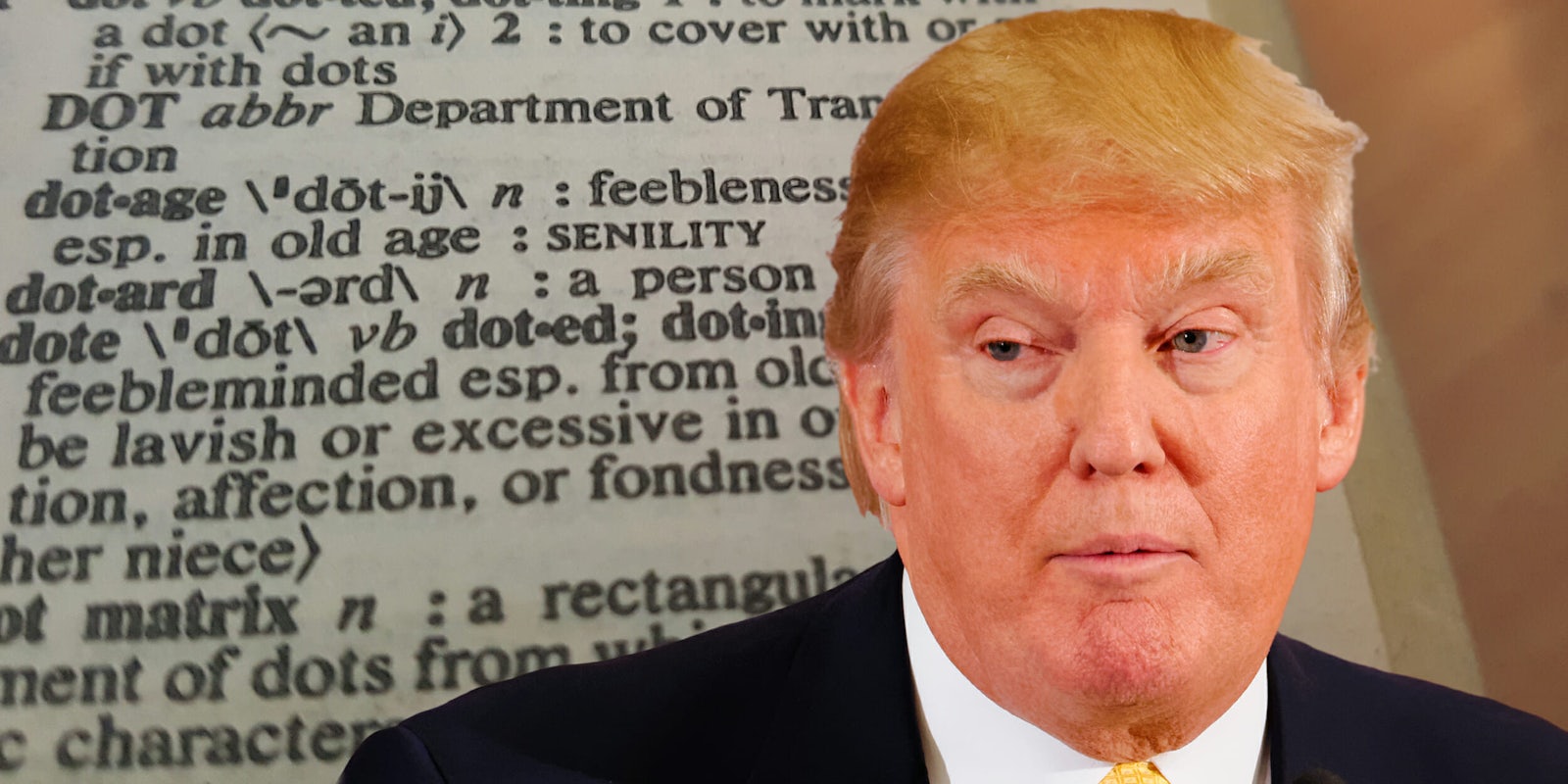As Donald Trump and Kim Jong-un volley insults at each other across the Pacific, Merriam-Webster’s Twitter account dutifully stands by to translate for the rest of the world.
Trump criticized the North Korean leader in his United Nations General Assembly speech earlier this week, calling him “Rocket Man” and threatening to annihilate the insular nation. Kim Jong-un fired back last night, labeling the president a “frightened dog,” “mentally deranged,” and a “dotard.”
In response, searches for the latter term hit an instant high, and Merriam-Webster, already a trusted resource during tumultuous and confusing times, was there to meet demand. Though the dictionary frequently tweets trending terms and topics, rarely has it called search volume “high as a kite.”
📈 Kim Jong Un calls Trump a mentally deranged U.S. dotard. Searches for ‘dotard’ are high as a kite. https://t.co/HztPoLSjXi
— Merriam-Webster (@MerriamWebster) September 21, 2017
Though “dotard” literally just refers to someone “in his or her dotage,” the term has everyone bickering over its true provenance.
https://twitter.com/Gweskoyen/status/911004524697006080
https://twitter.com/Gemma__Eleanor/status/911008438150356992
It’s pronounced d’oh turd right?
— (((𝔽𝕣𝕖𝕟𝕔𝕙ℂ𝕠𝕣𝕚)))♏️ (@frenchcori) September 22, 2017
https://twitter.com/kthorning/status/911044931212410885
Dotard (n): A fatty, orange delicacy served in #Nambia . pic.twitter.com/4vYPzuWCht
— Mary Birdsong🇺🇦 (@marybirdsong) September 22, 2017
Jokes aside, there is something of an etymological history to dig through here; Merriam-Webster notes the term’s original meaning was more in line with “imbecile” when it was introduced seven centuries ago.
America has collectively learned a new word regardless, but all this debate presumes that Kim Jong-un’s letter was accurately translated to English in the first place. One Twitter user suggests that a more accurate gloss of the insult hurled at Trump is “old beast lunatic,” which sounds like a little-known addition to the Wu-Tang Clan more than anything else.
The Korean original statement said “늙다리 미치광이,” which means old beast lunatic — which was translated into “dotard.” https://t.co/2uQ0Xsxe2X
— Jihye Lee (@TheJihyeLee) September 21, 2017
Not since “covfefe” has the nation taken such a vested interest in lexicography. Maybe next, we can all race to learn to read Korean.


